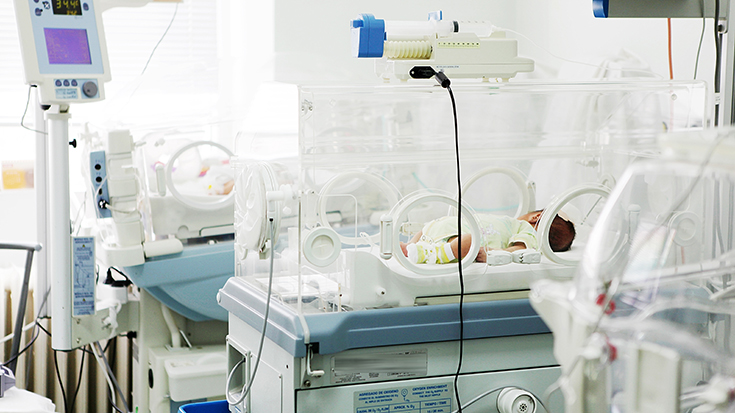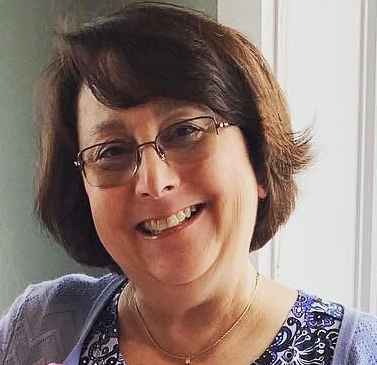
Deborah Igo, BS, RRT, RRT-NPS, had a pretty sweet deal when it came time to attend college.

“My dad was on the faculty at Northeastern University for my entire childhood, and one of his benefits was 100% tuition for his kids to attend NU,” she said. “My senior year of high school in 1977 he brought home a program catalog for me to choose from, so I read through some of the programs that sounded interesting.”
She was thinking about a career in health care, but since she had rarely even been in a hospital, she didn’t really know what any of them were about. So, she selected a few that sounded interesting using the old “eenie, meenie, miney, moe” method.
Respiratory therapy was the winner.
“I knew I hated tobacco smoking so I thought I could do this,” said Igo, who works at Maine Medical Center, which includes the Barbara Bush Children’s Hospital in Portland, ME. “I applied, was accepted, and now over 40 years later I am still following the career path I so randomly selected.”
Perseverance pays off
Igo has worked with many of her colleagues for more than 35 years now and says they grew up together from “baby respiratory therapists to leaders in our department.” Research has always been an interest of theirs, and last year Igo presented an abstract at the AARC Congress Open Forum in New Orleans that delved into a topic that had been on her personal radar screen for decades.
The paper, “Decreasing unplanned extubation in the Neonatal Intensive Care Unit,” was accepted into the prestigious Editors’ Choice session at the meeting.
The topic had its roots in a quality improvement program launched at her hospital.
“Many years ago, the chief of neonatology approached me about our NICU’s desire to join a quality improvement project about chronic lung disease in the NICU,” explained Igo. Called The Vermont Oxford Network (VON), the group focuses on multidisciplinary teams that use Plan-Do-Study-Act cycles to identify practices that will ultimately improve outcomes for patients.
“I was hooked,” she said. “We changed everything we do about caring for neonates and it was wonderful being part of an active, willing-to-change team — unless you talked about their taping ETT practices, that is.”
She began tracking unplanned extubations in the NICU about 15 years ago but couldn’t get any traction for the idea of looking at alternative methods of securing tubes.
“No one else thought we had a problem,” she said. “The culture in our unit was very clearly that babies self-extubate, it’s the cost of doing business in the NICU.”
She put the topic on the backburner to forge ahead with the VON initiatives, but when a new neonatologist who had similar concerns about unplanned extubation joined the staff a couple of years ago, she knew the time was right for a deeper dive.
“We had a tough road ahead of us but just kept moving forward,” she said. It paid off. “Today we immediately get a detailed safety report and staff are unhappy when an extubation occurs.”
Worth the effort
Igo says the most difficult aspect of research for her was taking the course required by her hospital to get started and completing the Institutional Review Board applications, simply because of the hours and hours of time involved.
“We do have a Clinical Scholars Program at our facility that is an awesome introduction into how to review research, conduct research, and supports the new researcher on their journey,” she said. “I advise any of my team to take this course if interested in research.”
It’s all worth it in the end.
“Knowing that you are using evidence to develop your practice is probably the biggest factor for me, and then sharing what you learned,” said Igo.
Her best advice for novice researchers —
- Nothing will get you more engaged in your workplace than working on a project with a great team!
- Take little bites at a time, find a mentor, find a training course.
- Find something to study that you are passionate about or something that just bothers you.
Get help here
The AARC has some great resources for anyone interested in developing their research skills, including the Research Track in the Leadership Institute and the Research Community on AARConnect.





